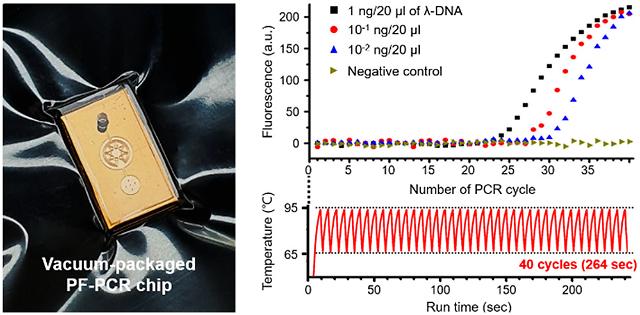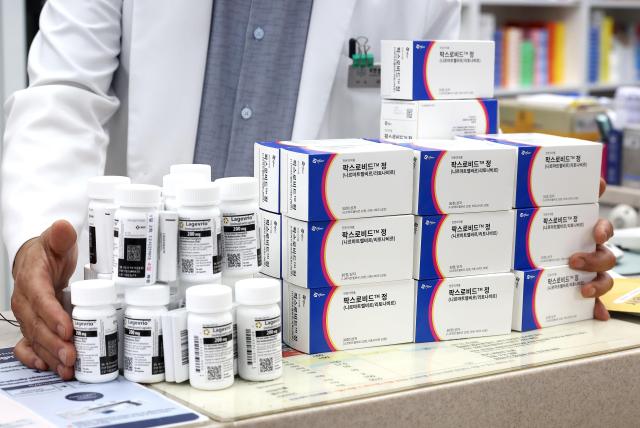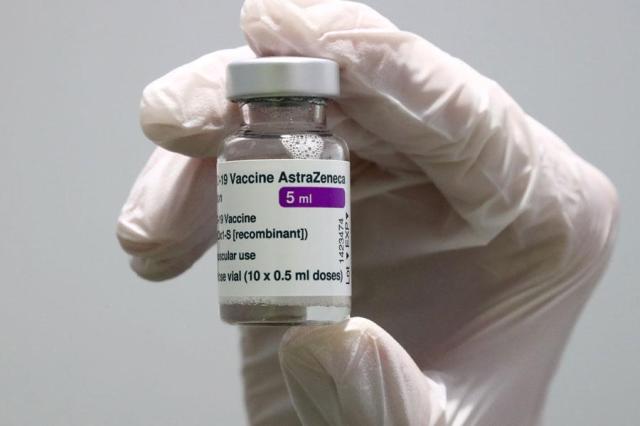
[Courtesy of KAIST]
The real-time polymerase chain reaction (RT-PCR) test method that amplifies a specific DNA sample was adopted in South Korea when the country was hit by the first wave of a coronavirus pandemic in March 2020. The RT-PCR method showed high accuracy but it required samples to be taken to special facilities to be tested by trained personnel. It takes about six hours to get results, making it harder for South Korea's disease control body to react to local outbreaks in real-time.
The Korea Advanced Institute of Science & Technology (KAIST) said in a statement on June 7 that its team of researchers developed an accurate and rapid PCR diagnostics technique using a nanoplasmonic on-chip platform. It uses glass nanopillar arrays with gold nanoislands to amplify the DNA inside a sample. Unlike the current PCR method that requires large facilities, KAIST's nanoplasmonic platform can be used for on-site tests.
According to the researchers, the new test technique demonstrated amplification efficiencies of more than 91 percent, which is much higher than commercialized self COVID-19 test kits' amplification efficiencies of about 50 percent. Self COVID-19 test kits that show results in 30 minutes are currently available at retail stores in South Korea but none has received state approval for its accuracy.
KAIST said that the nanoplasmonic on-chip platform can be conveniently used at multi-purpose facilities such as shopping malls and sports gymnasiums as well as COVID-19 screening centers without the need for expensive and bulky testing machines.
Copyright ⓒ Aju Press All rights reserved.





View more comments